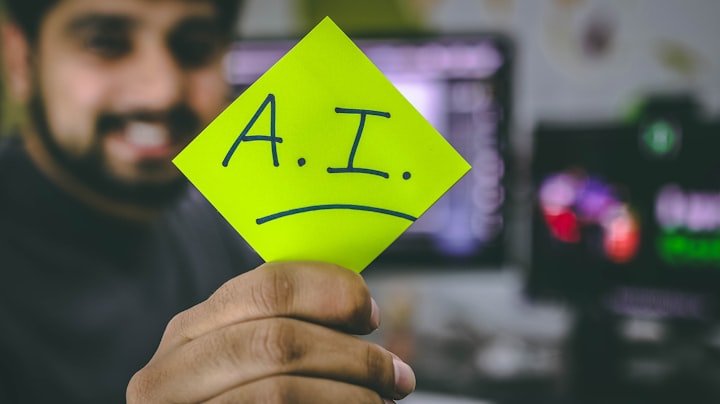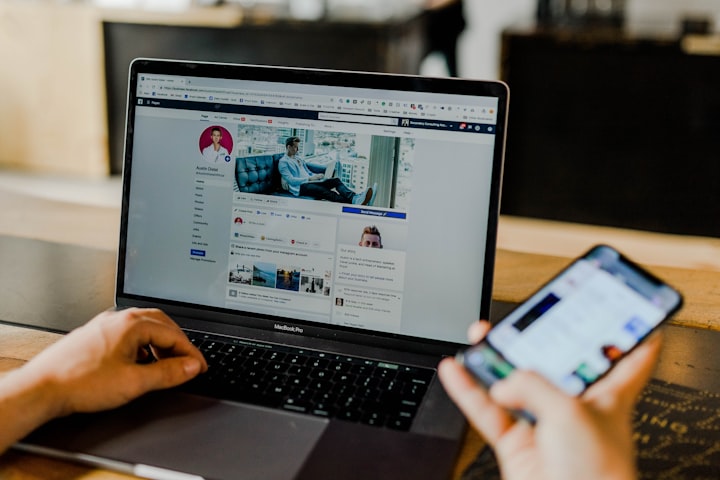The impact of AI on the future of work
The impact of AI on the future of work

Artificial Intelligence (AI) is a rapidly evolving technology that has the potential to revolutionize the way we work. From automating repetitive tasks to improving decision-making, AI has the power to transform industries and change the future of work. In this post, we'll take a look at the impact of AI on the future of work and what it means for workers, businesses, and society as a whole.
1. Automation of repetitive tasks
One of the most obvious ways that AI is impacting the future of work is through the automation of repetitive tasks. Many jobs that involve repetitive tasks such as data entry or customer service can now be done by AI-powered systems, which can work faster and more accurately than humans. This automation of repetitive tasks can free up workers to focus on more complex and creative tasks, but it also means that some jobs may become obsolete.
2. Improved decision-making
AI also has the potential to improve decision-making in the workplace. AI-powered systems can analyze large amounts of data, such as customer data or financial data, and provide insights that can help businesses make more informed decisions. This can help businesses to be more efficient and competitive, but it also raises concerns about the impact on jobs that involve decision-making, such as analysts or managers.
3. Virtual assistance
Another way that AI is impacting the future of work is through the development of virtual assistants. These AI-powered systems can help with tasks such as scheduling meetings, responding to emails and customer queries, and even making decisions. Virtual assistants can help to improve productivity and efficiency, but they also have the potential to displace jobs that involve administrative tasks.
4. Personalized training and development
AI also has the potential to personalize training and development for workers. AI-powered systems can analyze the skills and abilities of individual workers and provide personalized training and development programs to help them improve their skills. This can help workers to be more productive and engaged in their jobs, but it also raises concerns about the potential for bias and unequal access to training and development opportunities.
5. New job opportunities
While AI has the potential to automate and displace some jobs, it is also creating new job opportunities. As AI becomes more prevalent in the workplace, there will be a need for workers who are skilled in developing, managing and maintaining these systems. Moreover, as AI improves decision-making, there will be a growing need for workers who can interpret and act on the insights provided by these systems.
In conclusion, AI is having a significant impact on the future of work, and it has the potential to change the way we work in many ways. From automating repetitive tasks to improving decision-making, AI has the power to transform industries and change the future of work. However, it is important to consider the potential impact on workers, businesses, and society as a whole, and ensure that the benefits of AI are distributed equitably.
As we look to the future, it's important to consider the implications of AI on the workforce and the economy as a whole. While AI has the potential to bring many benefits, such as increased efficiency and productivity, it's important to ensure that these benefits are shared equitably and that workers are not left behind. Governments and businesses will need to work together to develop policies and programs that support the transition to an AI-driven economy, such as retraining programs for workers whose jobs may be impacted by automation.
It's also important to consider the ethical and societal implications of AI. As AI-powered systems become more advanced, there are concerns about their ability to make decisions that affect human lives. For example, in the case of self-driving cars, there may be situations where the car's algorithm needs to make a decision that could result in harm to human life. It's crucial to ensure that these systems are transparent, explainable, and accountable, so that the public can have confidence in their ability to make ethical decisions.
Additionally, it's important to ensure that the data used to train these systems is diverse and unbiased. This will help to ensure that the decisions made by AI-powered systems are fair and equitable for everyone.
In conclusion, the impact of AI on the future of work is undeniable, and it has the potential to change the way we work in many ways. However, it's important to consider the potential impact on workers, businesses, and society as a whole, and ensure that the benefits of AI are distributed equitably. Governments and businesses must work together to develop policies and programs that support the transition to an AI-driven economy, and ensure that the ethical and societal implications of AI are considered.





Comments
There are no comments for this story
Be the first to respond and start the conversation.